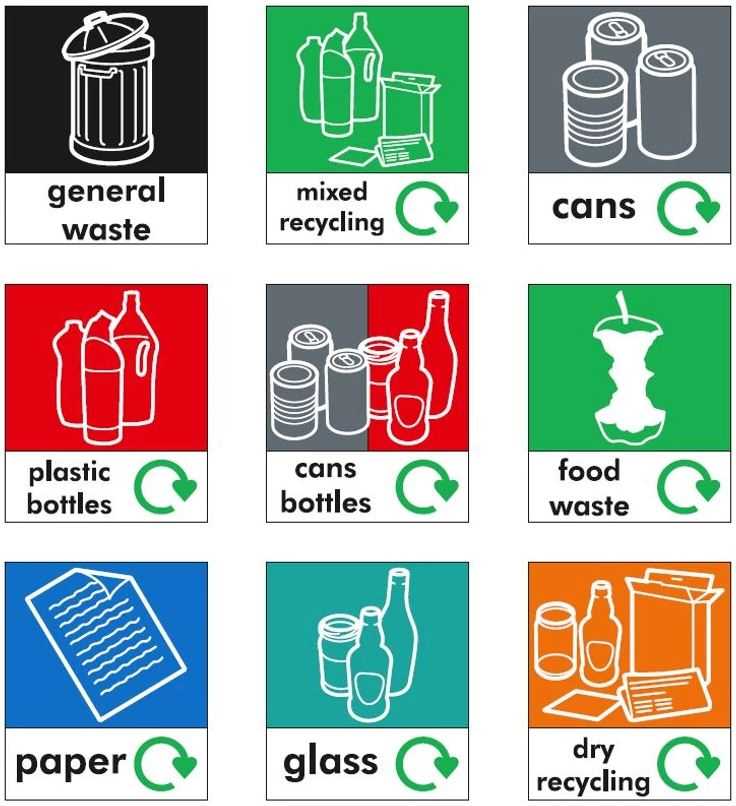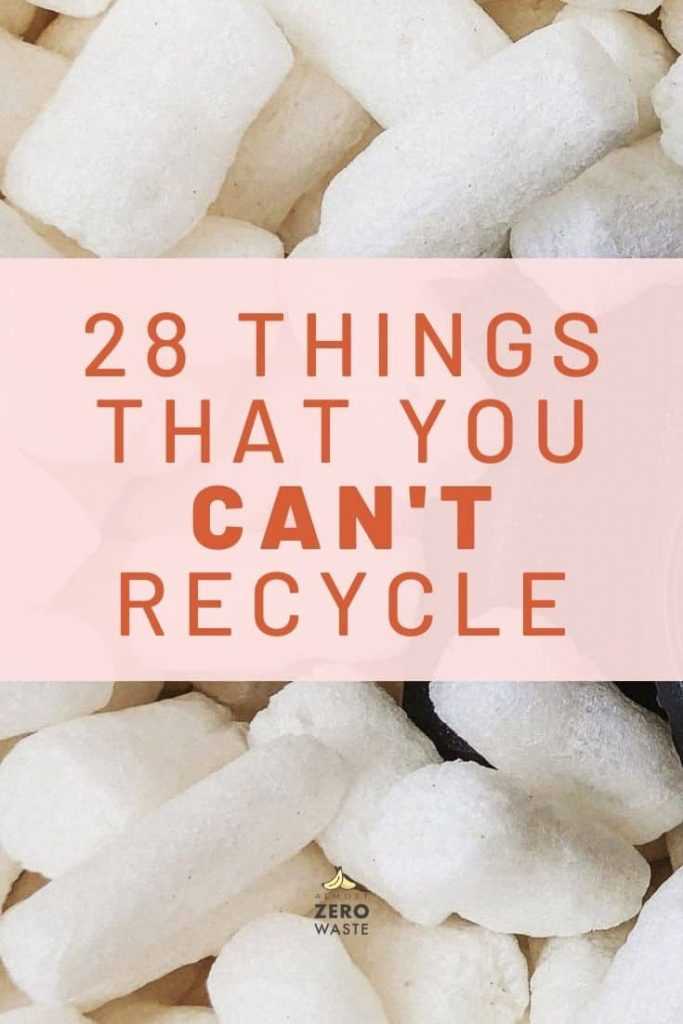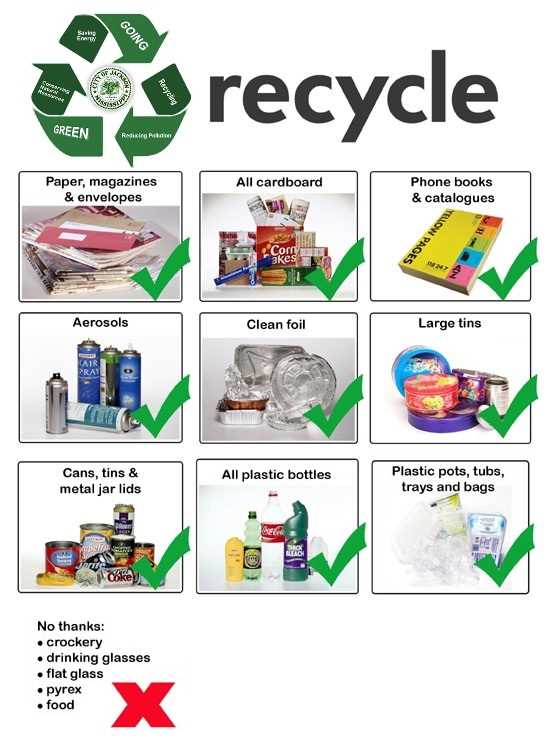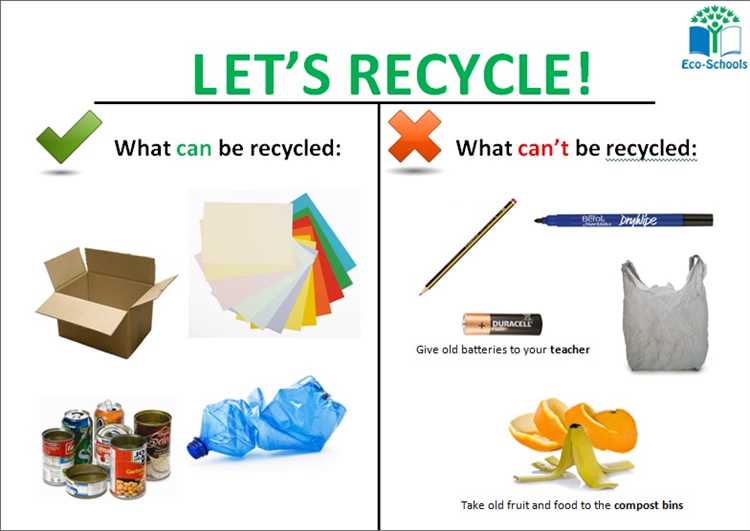
Recycling is an important practice that helps us protect the environment. By recycling, we can reduce waste and conserve natural resources. However, not everything can be recycled. It is essential for kids to understand what items cannot be recycled so they can make the right choices when it comes to waste disposal.
Plastic bags are one example of items that cannot be recycled in most recycling programs. These bags can cause damage to recycling equipment and contaminate other recyclable materials. Instead of throwing them away, it’s better to reuse them or bring them to special collection points found in some grocery stores.
Styrofoam is another material that poses challenges for recycling. This type of plastic foam is not biodegradable and takes hundreds of years to break down. Many recycling programs do not accept Styrofoam, so it’s important to find out if there are alternative options for its disposal, such as specialized recycling facilities.
- Plastics That Cannot be Recycled
- #1 Styrofoam
- #2 PVC
- Types of Non-Recyclable Plastics
- Polystyrene (PS)
- Polyvinyl Chloride (PVC)
- Unrecyclable Paper Products
- 1. Soiled paper
- 2. Wax-coated paper
- 3. Carbon paper
- 4. Thermal paper
- Paper Items That Cannot be Recycled
- 1. Paper coated with plastic or wax
- 2. Soiled or dirty paper
- 3. Paper with adhesive or sticky substances
- 4. Paper with metallic foils or glitter
- Metals That Cannot be Recycled
- Non-Recyclable Metal Materials
- 1. Aerosol cans
- 2. Aluminum foil
- Non-Recyclable Glass
- How to Dispose of Non-Recyclable Glass
- Types of Glass That Cannot be Recycled
- Q&A:
- What are some items that cannot be recycled?
- Why can’t plastic bags be recycled?
- Can broken glass be recycled?
- What should I do with Styrofoam?
- Why can’t greasy pizza boxes be recycled?
Plastics That Cannot be Recycled
While many types of plastics can be recycled and turned into new products, there are some plastics that cannot be recycled. It is important to know which plastics cannot be recycled so that we can make more informed decisions about how we use and dispose of them.
#1 Styrofoam

Styrofoam, also known as expanded polystyrene (EPS), is a type of plastic that is commonly used for packaging and insulation. Unfortunately, Styrofoam cannot be recycled in most curbside recycling programs. This is because Styrofoam is made up of mostly air and is extremely lightweight, making it difficult and expensive to transport and recycle.
#2 PVC
PVC, or polyvinyl chloride, is a type of plastic that is commonly used for pipes, vinyl flooring, and shower curtains. It cannot be recycled because it contains chlorine, which can be harmful if released into the environment during the recycling process. PVC also releases toxic chemicals when burned, making it a harmful material to dispose of.
It is important to remember to reduce our use of plastics that cannot be recycled whenever possible. By choosing reusable alternatives and properly disposing of plastics, we can help reduce the negative impacts of plastic waste on the environment.
Types of Non-Recyclable Plastics
When it comes to recycling, some plastics are not able to be recycled due to their composition or other factors. Here are some examples of non-recyclable plastics:
Polystyrene (PS)
Polystyrene, commonly known as Styrofoam, is a non-recyclable plastic that is used in packaging, disposable cups, and insulation. Its light weight and ability to retain heat make it useful for these purposes, but it is not recyclable in most recycling programs.
Polyvinyl Chloride (PVC)
Polyvinyl Chloride, also known as PVC, is widely used in construction materials, such as pipes, window frames, and flooring. Although it is a durable plastic, it cannot be easily recycled due to the presence of additives and contaminants.
Other examples of non-recyclable plastics include:
- Polycarbonate (PC)
- Biodegradable Plastics
- Plastic Bags
- Plastic Film
It’s important to remember that just because a plastic is not recyclable, it doesn’t mean it can’t be disposed of properly. Look for alternative disposal methods, such as proper waste management or seeking out specialized recycling programs that accept these non-recyclable plastics.
Unrecyclable Paper Products
While many paper products can be recycled, there are some paper items that cannot be recycled due to various reasons. Here are some examples of unrecyclable paper products:
1. Soiled paper

If paper is contaminated with food residue, grease, or other substances, it cannot be recycled. This includes pizza boxes with grease stains, used napkins, or paper plates with food residue.
2. Wax-coated paper

Paper that is coated with wax or other moisture-resistant materials cannot be recycled. This includes wax paper, wax-coated cardboard, and some types of takeout containers.
3. Carbon paper
Carbon paper, which is used for making copies or transferring writing onto multiple sheets, cannot be recycled. It contains chemicals and coatings that make it unsuitable for the recycling process.
4. Thermal paper
Thermal paper, often used for receipts and tickets, cannot be recycled. It is coated with a chemical that reacts to heat, making it difficult to separate and recycle the paper fibers.
It is important to remember that while these paper products cannot be recycled, there are usually alternatives available that are more environmentally friendly. Choosing reusable or sustainable options can help reduce our reliance on single-use paper products and minimize waste.
Paper Items That Cannot be Recycled
While many paper products can be recycled, there are certain types of paper items that cannot be recycled due to various reasons. It is important to know which paper items should not be placed in the recycling bin to ensure that the recycling process is effective and efficient.
1. Paper coated with plastic or wax
Paper products that are coated with plastic or wax, such as paper cups, milk cartons, and juice boxes, cannot be recycled. The plastic or wax coating prevents the paper from being effectively recycled, and these items should be placed in the regular trash.
2. Soiled or dirty paper
Soiled or dirty paper, such as used paper plates, napkins, and tissues, cannot be recycled. Contamination from food, oils, or other substances prevents these paper items from being recycled, and they should be disposed of in the regular trash.
3. Paper with adhesive or sticky substances
Paper items that have adhesive material, such as sticky notes or labels, cannot be recycled. The adhesive can contaminate the recycling process and cause issues with the machinery. These items should be thrown in the regular trash.
4. Paper with metallic foils or glitter
Paper products that contain metallic foils or glitter, such as gift wrapping paper or greeting cards, cannot be recycled. The metallic foils and glitter are difficult to separate from the paper fibers and can contaminate the recycling process. These items should be discarded in the regular trash.
By avoiding the inclusion of these non-recyclable paper items in the recycling bin, we can help ensure that the recycling process is more efficient and successful, reducing waste and protecting the environment.
Metals That Cannot be Recycled
While many metals can be recycled and given new life, there are some that cannot go through the recycling process. Here are a few examples:
1. Mercury: This metal is toxic and can pose serious health risks if it is not handled properly. It should never be disposed of in the regular recycling bin.
2. Lead: Similarly, lead is a highly toxic metal that can contaminate the environment if not handled correctly. It is commonly found in batteries, paints, and some electronics.
3. Radioactive metals: Metals that are radioactive, such as uranium and plutonium, cannot be recycled due to their hazardous nature. They require special disposal methods to prevent radiation exposure.
4. Mixed metals: Some items contain a combination of different metals that cannot be easily separated or recycled together. This can include items like metal-coated or laminated materials.
5. Steel cans with food residue: While steel cans can typically be recycled, those with food residue should be cleaned before recycling. The presence of food waste can contaminate the recycling process.
It is important to be mindful of what metals can and cannot be recycled to ensure that recycling efforts are effective and environmentally friendly. Proper disposal methods should be used for metals that cannot be recycled to minimize their impact on the environment.
Non-Recyclable Metal Materials
While many metal materials can be recycled, there are some types that cannot. It’s important for kids to understand which metal materials are not recyclable so they can dispose of them properly. Here are some examples of non-recyclable metal materials:
1. Aerosol cans
Aerosol cans, such as those used for spraying paint or deodorant, are not recyclable. They are typically made of a combination of metal and plastic, which makes them difficult to recycle. It’s best to empty the contents of the can and dispose of it in the regular trash.
2. Aluminum foil
Aluminum foil is not recyclable because it is often contaminated with food and grease. This contamination makes it difficult to separate the aluminum from other materials during the recycling process. Instead of recycling, aluminum foil should be cleaned and reused if possible or thrown away in the regular trash.
It’s important to remember that even though these metal materials cannot be recycled, we should still try to reduce our use of them and find more sustainable alternatives. By being mindful of our consumption, we can help protect the environment and conserve valuable resources.
| Non-Recyclable Metal Materials | Disposal Method |
|---|---|
| Aerosol cans | Regular trash |
| Aluminum foil | Regular trash |
Non-Recyclable Glass
Glass is one of the most common materials we use in our everyday lives. It is used to make bottles, jars, windows, and many other products. While glass is often thought of as recyclable, there are certain types of glass that cannot be recycled.
One example of non-recyclable glass is heat-resistant glass, also known as Pyrex. This type of glass is made with a special formula that makes it resistant to thermal shock, allowing it to be used in ovens and other high-temperature environments. However, this special formula also makes it difficult to recycle. The different melting points of heat-resistant glass and regular glass make it challenging to recycle them together.
Another type of non-recyclable glass is glass that has been treated with chemicals or coatings. Some glass products, such as mirrors or windowpanes, have coatings that give them special properties, like reflecting light or reducing heat transfer. These coatings can interfere with the recycling process and make the glass non-recyclable.
One more example of non-recyclable glass is glass that is contaminated with other materials. Glass that is contaminated with food waste, chemicals, or other substances is not suitable for recycling. Any impurities in the glass can affect the quality of the recycled glass and make it less valuable.
How to Dispose of Non-Recyclable Glass
When you have non-recyclable glass, it is important to dispose of it properly to minimize its impact on the environment. One option is to reuse the glass for other purposes. For example, you can use heat-resistant glass containers for storing food or other items. You can also repurpose glass products, such as turning old windows into picture frames.
If reusing is not an option, you can dispose of non-recyclable glass in the regular trash. However, it is important to handle and package the glass safely to prevent any accidents or injuries. You can wrap the glass in newspaper or place it in a sturdy bag before putting it in the trash bin.
By being aware of what types of glass cannot be recycled and taking appropriate disposal measures, we can reduce our impact on the environment and promote sustainability.
Types of Glass That Cannot be Recycled
Glass is one of the most commonly recycled materials due to its sustainability and ease of recycling process. However, there are certain types of glass that cannot be recycled due to their chemical composition or contamination.
1. Ceramics: Ceramics such as plates, mugs, and cookware are not recyclable with glass. They have different melting points and chemical compositions that make them incompatible with glass recycling processes.
2. Pyrex and Ovenware: Pyrex glass and ovenware are made with a special blend of glass that has a higher melting point. This makes them unsuitable for recycling with regular glass.
3. Light Bulbs: While glass light bulbs can technically be recycled, most recycling centers do not accept them due to the risk of breakage and mercury content present in some types of light bulbs.
4. Mirrors: Mirrors are not recyclable due to their reflective coating. The coating contaminates the glass and makes it difficult to recycle without specialized processes.
5. Window Glass: Window glass, such as glass panes or glass from car windows, cannot be recycled with regular glass. The different melting points and chemical composition of window glass make it unsuitable for recycling processes.
6. Drinking Glasses and Glassware: Drinking glasses, glassware, and decorative glass items like vases or bowls are not recyclable with regular glass due to their different chemical composition and melting points.
7. Heat-Resistant Glass: Glass items designed to withstand high temperatures, such as laboratory glassware or heat-resistant cookware, cannot be recycled with regular glass due to their different melting points and chemical compositions.
8. Crystal Glass: Crystal glass, which contains a higher percentage of lead, cannot be recycled with regular glass. The lead content makes it unsuitable for the recycling process.
9. Broken Glass: Small pieces of broken glass, such as shards or fragments, are difficult to recycle due to safety concerns. They can contaminate other recyclables and pose a risk to workers in recycling facilities.
10. Colored Glass: While colored glass can be recycled, it requires separate processing from regular glass. It may be sorted and recycled separately based on its color to maintain the quality of recycled glass.
Q&A:
What are some items that cannot be recycled?
Some items that cannot be recycled include plastic bags, Styrofoam, greasy pizza boxes, and broken glass.
Why can’t plastic bags be recycled?
Plastic bags cannot be recycled because they get tangled in recycling machinery and can cause damage.
Can broken glass be recycled?
No, broken glass cannot be recycled because it can injure workers and contaminate other recyclables.
What should I do with Styrofoam?
Styrofoam cannot be recycled, so it is best to avoid using it if possible. If you have Styrofoam, try to find a recycling center that accepts it or dispose of it in the regular trash.
Why can’t greasy pizza boxes be recycled?
Greasy pizza boxes cannot be recycled because the oil and grease from the pizza can contaminate the paper fibers, making them unrecyclable.